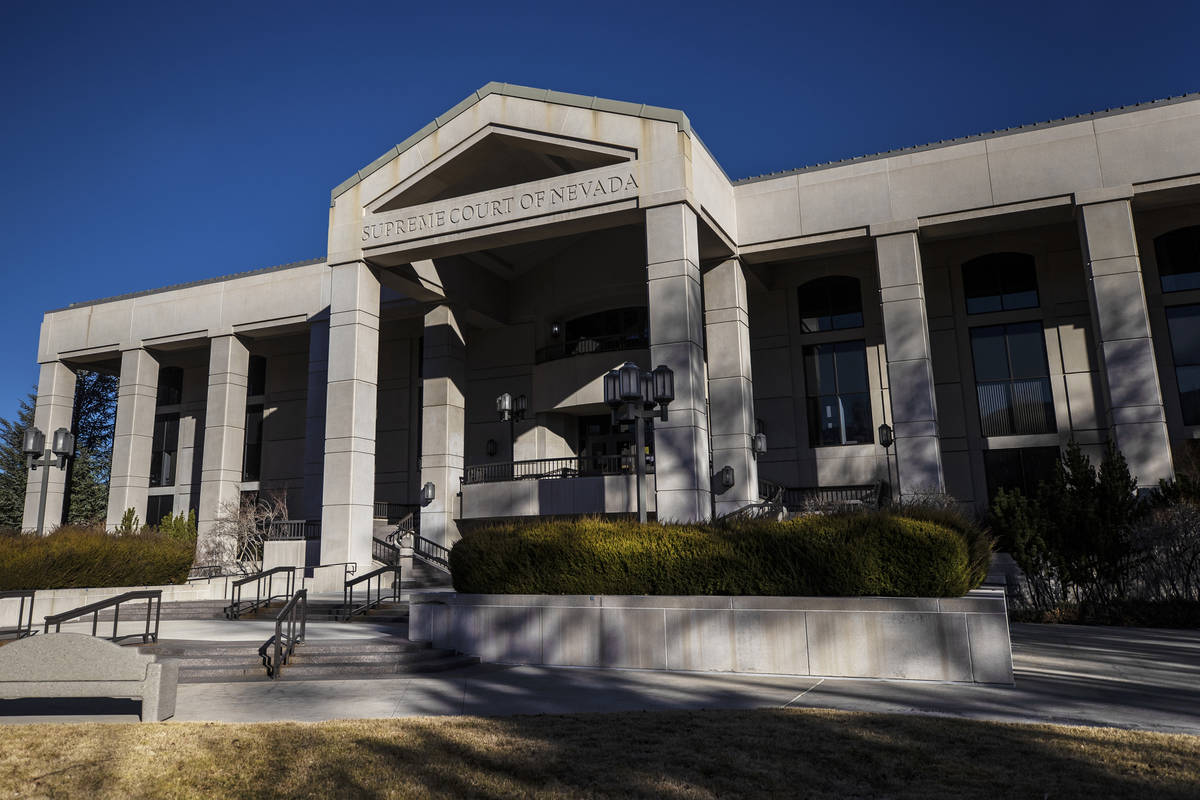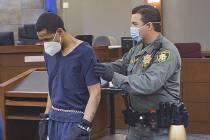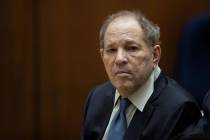Nevada Supreme Court budget bomb: It’s not the first time
It’s almost like clockwork.
The Nevada Legislature is wrapping up a biennial session, and the Nevada Supreme Court hands down a decision that has implications for the budget and sends lawmakers scrambling.
It happened on Thursday, when the court ruled unconstitutional a pair of laws pertaining to the payroll tax and a DMV technology fee.
But that’s hardly the first time this has happened. In fact, it happens roughly every 10 years.
It started in 2003, when the Legislature found itself stymied at session’s end by a disagreement over taxes proposed by then-Gov. Kenny Guinn. Democrats had left the schools budget unfunded and were pushing a tax increase to cover the expense.
But a cadre of Republicans in the Assembly blocked the taxes, thanks to a voter-approved provision in the state constitution that requires a two-thirds majority to raise taxes. With 15 Republicans in the lower house, the Democratic majority was just one vote shy of mustering two-thirds.
The session ended, and two special sessions were called. The new fiscal year dawned, and with schools in danger of not opening, Guinn sued the Legislature, asking the courts to compel lawmakers to fund the schools budget.
But the court did something hardly anybody expected: It ruled that the constitutional requirement to pass a budget and the taxes to cover it outweighed the more recent two-thirds requirement, and said the Legislature could proceed with a simple majority.
Criticism was harsh, fierce and loud. And while the ruling could have made passing taxes easy, lawmakers went back to work and eventually found that final vote to pass the budget with two-thirds. Ultimately, the holding in Guinn v. Legislature was overturned.
No sweeps
Then, in 2011, as the Legislature was wrapping up a recession-plagued budget under newly elected Gov. Brian Sandoval, the Supreme Court did it again.
As part of the budgeting process, lawmakers had decided to “sweep” a series of funds with extra money to plug their budget holes. One of those funds had been created in Clark County to fund additional wastewater infrastructure.
And the entity in charge of those funds decided it would sue the state, charging that the Legislature’s raiding of the piggy banks was unconstitutional.
Sure enough, about two weeks before the close of the session, the court agreed, finding that sweeping the funds from the account constituted an unconstitutional local or special law.
Suddenly, the budget had a hole that could have been as much as $657 million, and Sandoval — who had promised no new taxes during his campaign for governor — had a problem. The governor ultimately solved it by extending a package of taxes that had been set to expire in order to cover the shortfall.
The urgency of the crisis — and the fact that people would continue to pay the same taxes they’d already been paying — helped the persuasive Sandoval sell the idea. It passed, with a two-thirds majority. (Ironically enough, that supposedly temporary package of taxes was eventually made permanent.)
A tax increase?
That brings us to this year, when Republican state senators sued the Legislature over two bills passed in 2019. One would repeal a scheduled drop in the payroll tax, while another would retain a DMV technology fee that was otherwise set to expire.
The problem? Just like 2003, Democrats in the state Senate during the 2019 session were one vote shy of two-thirds.
And also like 2003, Democrats had a legal opinion that allowed them to proceed with just a simple majority. This time, it was the Legislative Counsel Bureau, which had issued a 24-page memo that opined continuing an existing tax at its same rate did not constitute a tax increase, since nobody would pay additional money.
But on Thursday, the Supreme Court made quick work of knocking that idea down: Since the state would receive more money because of the two bills in question than it would have if they had not been passed, the vote required a two-thirds supermajority. And thus, those bills were unconstitutional.
Gov. Steve Sisolak, who had built revenue from those taxes into his budget, said he and lawmakers would work for find the more than $100 million that the court’s decision had cost the state. Fortunately, Nevada had seen a post-pandemic windfall of higher-than-expected tax revenue.
Stay tuned: Who knows what the Supreme Court will do in the closing day of the 2031 session. Future lawmakers may want to start saving now so they’re prepared.
Coming up in Carson City
On Monday, the Senate Finance Committee is scheduled to take up Senate Bill 165, by Sen. Ben Kieckhefer, R-Reno. The measure would establish a commission to regulate esports in Nevada, part of a push to put Nevada out front as a destination for video gamers and gaming.
The committee will also hear Senate Bill 347, a measure by Sen. Melanie Scheible, D-Las Vegas, to combat sexual misconduct in colleges and universities of the state.
Also on Monday, the Senate Growth and Infrastructure Committee will hear a bill that calls for doing away with the state’s program of green building tax credits. According to a presentation prepared for Senate Bill 442, the credits are no longer necessary since modern building codes already call for energy efficiency equivalent to those in the tax credit program.
Contact Steve Sebelius at SSebelius@reviewjournal.com. Follow @SteveSebelius on Twitter.



















